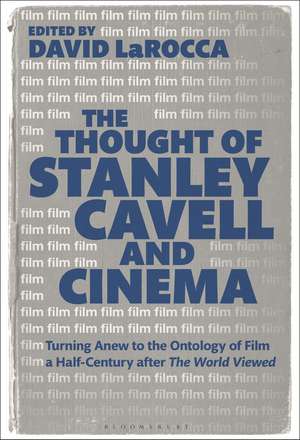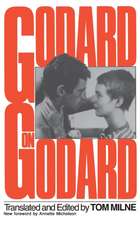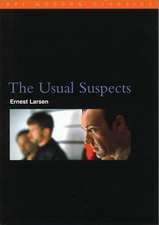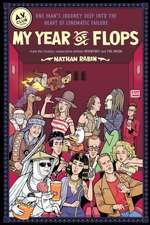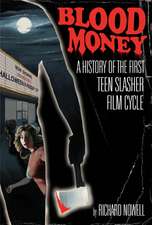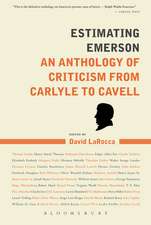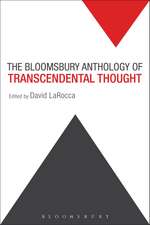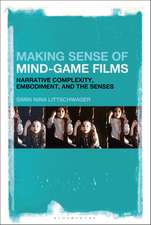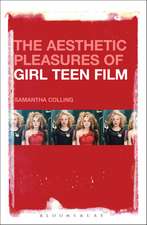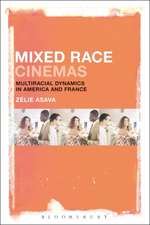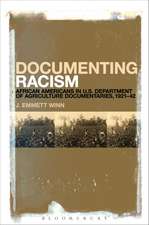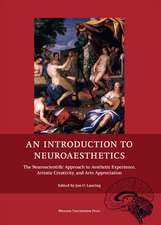The Thought of Stanley Cavell and Cinema: Turning Anew to the Ontology of Film a Half-Century after The World Viewed
Editat de Dr. David LaRoccaen Limba Engleză Paperback – 23 feb 2022
| Toate formatele și edițiile | Preț | Express |
|---|---|---|
| Paperback (1) | 199.83 lei 6-8 săpt. | |
| Bloomsbury Publishing – 23 feb 2022 | 199.83 lei 6-8 săpt. | |
| Hardback (1) | 716.89 lei 6-8 săpt. | |
| Bloomsbury Publishing – 22 ian 2020 | 716.89 lei 6-8 săpt. |
Preț: 199.83 lei
Preț vechi: 258.97 lei
-23% Nou
Puncte Express: 300
Preț estimativ în valută:
38.24€ • 39.78$ • 31.57£
38.24€ • 39.78$ • 31.57£
Carte tipărită la comandă
Livrare economică 12-26 aprilie
Preluare comenzi: 021 569.72.76
Specificații
ISBN-13: 9781501384073
ISBN-10: 1501384074
Pagini: 336
Dimensiuni: 152 x 229 mm
Greutate: 0.45 kg
Editura: Bloomsbury Publishing
Colecția Bloomsbury Academic
Locul publicării:New York, United States
ISBN-10: 1501384074
Pagini: 336
Dimensiuni: 152 x 229 mm
Greutate: 0.45 kg
Editura: Bloomsbury Publishing
Colecția Bloomsbury Academic
Locul publicării:New York, United States
Caracteristici
New, vital scholarship on subject matter not treated elsewhere in the secondary literature, in particular, Cavell's legacy for our thinking about film ontology
Notă biografică
David LaRocca is the author, editor, or coeditor of more than a dozen books. He edited Movies with Stanley Cavell in Mind (Bloomsbury, 2021), Inheriting Stanley Cavell (Bloomsbury, 2020), a commemorative issue of Conversations: The Journal of Cavellian Studies (2019), and Stanley Cavell's Emerson's Transcendental Etudes (2003). He has taught philosophy and cinema and held visiting research or teaching positions in the United States at Binghamton University, Cornell University, Harvard University, Ithaca College, the School of Visual Arts, the State University of New York College at Cortland, and Vanderbilt University.
Cuprins
Preface: Stanley Cavell and CinemaThomas Elsaesser, University of Amsterdam, The NetherlandsIntroduction: Philosophy's Claim to Film, Film's Claim to Philosophy David LaRocca, Cornell University, USAPart I. Underwriting and Overhearing: Reconceiving Cinematic Ontology and Genre1. "Assertions in Technique": Tracking the Medial "Thread" in Cavell's Filmic OntologyGarrett Stewart, University of Iowa, USA2. Revisiting The World ViewedNoël Carroll, Graduate Center of the City University of New York, USA3. The World HeardKyle Stevens, Appalachian State University, USA4. What a Genre of Film Might Be: Medium, Myth, and Morality Stephen Mulhall, New College, Oxford University, UKPart II. Interlude: Temperaments for Film5. My Troubled Relationship with Stanley Cavell: In Pursuit of a Truly Cinematic Conversation Scott MacDonald, Hamilton College, USA6. Film as Film and the Personal William Rothman, University of Miami, USAPart III. Philosophy, as if Made for Film7. Between Skepticism and Perfectionism: On Cavell's Melodrama of the Unknown WomanRobert Sinnerbrink, Macquarie University, Australia8. Overcoming Skepticism in CasablancaThomas E. Wartenberg, Mount Holyoke College, USA9. A Skeptic's Reprieve: Cavell on Comedy in Shakespeare and the Movies Lawrence F. Rhu, University of South Carolina, USA Part IV. Film, as if Made for Philosophy10. Film Exists in a State of Philosophy: Two Contemporary Cavellian Views Shawn Loht, Baton Rouge Community College, USA11. The Conception of Film for the Subject of Television: Moral Education of the Public and a Return to an Aesthetics of the OrdinarySandra Laugier, Université Paris 1 Panthéon Sorbonne, France12. On Film in Reality: Cavellian Reflections on Skepticism, Belief, and DocumentaryMathew Abbott, Federation University, Australia13. On the Aesthetics of Amateur Filmmaking in Narrative Cinema: Negotiating Home Movies after Adam's RibDavid LaRocca, Cornell University, USAAcknowledgementsIndexContributors
Recenzii
[The Thought of Stanley Cavell and Cinema] will be valuable to those interested in philosophy, film studies, literature, and US culture. Summing Up: Highly recommended. Lower-division undergraduates through faculty; general readers.
Stanley Cavell argued that film exists in a state of philosophy. Part of what he meant by this was that thinking about a film is a way of doing philosophy. That has been his influential and most controversial claim. The authors in this collection explore what he might have meant in ways more variegated, thoughtful, original and illuminating than anything I have seen before. The Thought of Stanley Cavell and Cinema, exemplary in its clarity and carefulness, is a watershed both in our understanding of Cavell and of film itself.
A brilliant collection of original essays by major figures in the field. The genius of Cavell's writings on film is in sharp focus throughout -- likewise the continued provocation of The World Viewed and its successor books and essays.
Stanley Cavell argued that film exists in a state of philosophy. Part of what he meant by this was that thinking about a film is a way of doing philosophy. That has been his influential and most controversial claim. The authors in this collection explore what he might have meant in ways more variegated, thoughtful, original and illuminating than anything I have seen before. The Thought of Stanley Cavell and Cinema, exemplary in its clarity and carefulness, is a watershed both in our understanding of Cavell and of film itself.
A brilliant collection of original essays by major figures in the field. The genius of Cavell's writings on film is in sharp focus throughout -- likewise the continued provocation of The World Viewed and its successor books and essays.
